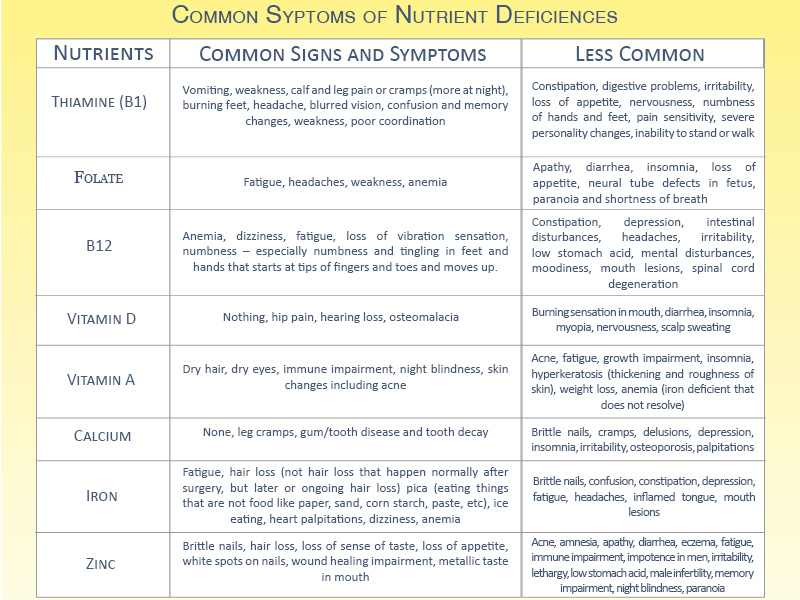 *Please Note: The OAC Blog is not a substitute for medical advice. If you have any questions regarding the information in this blog series, please be sure to speak with a healthcare professional regarding your concerns.
*Please Note: The OAC Blog is not a substitute for medical advice. If you have any questions regarding the information in this blog series, please be sure to speak with a healthcare professional regarding your concerns.
After you have had bariatric surgery, your surgeon or healthcare provider will ask you to do a certain amount of follow-up. For nutrition, this often means two to four visits in the first year to have labs checked and perhaps meet with the dietitian and then – assuming all is well – you may be told that you only need to come back once a year to make sure you are not developing any health-related problems.
These follow-up visits are important to make sure that you are adjusting to your procedure, and that you are not having problems with your nutritional intake from either food or any recommended vitamins. Your healthcare provider will also check your labs to make sure that a more serious nutritional problem is not developing.
Even though the most frequent follow-up is in the first one to two years, nutritional problems actually become more common throughout time. This is both because it can take time for nutrient stores to run down but also because, throughout time, people may become more lax in their eating and in taking recommended supplements.
Because nutritional problems can develop at any time, it is a good idea for anyone who has had bariatric surgery to be aware of common symptoms that might indicate a deficiency. Typically, symptoms of a deficiency will be a new problem that does not go away or gets worse. For example, fatigue can happen just because you are stressed. Usually, that kind of fatigue will go away when the stress is better. Fatigue from something like B12 deficiency will usually not go away and may continue to worsen even if you are doing things like sleeping more.
The following is a list of some signs and symptoms of deficiencies that can happen after bariatric surgery. Remember, if you have symptoms like these, it is very important that you talk to your healthcare provider about it so they can look for the cause. It is never a good idea to try to treat yourself for a nutritional problem – especially because many can look alike. Also, medical problems that have nothing to do with vitamins and minerals can look like nutritional problems. So make sure that if you are not feeling well, you talk to a professional who can help you pinpoint the problem.
About the Author
Dr. Jacques, a frequent author in the OAC’s quarterly publication, Your Weight Matters Magazine, is a Naturopathic Doctor with more than a decade of expertise in medical nutrition. Her greatest love is empowering patients to better their own health. Dr. Jacques is a member of the OAC National Board of Directors.



Its important for follow ups but in sheffield we get sort of dumped after 1 st yr i had a bypas 4& half yrs ago
Julie, I was dumped also, due to , I am not sure why.. I am 10 years out in Feb. And I haven’t had a follow up since I had a perforated ulcer exactly a year later, after I had the RNY.
Sad but true, I think it happens to a lot of us..
Thank you for sharing this information. I had gastric bypass surgery 5 months ago and have seen my surgeon or should I say the surgeon’s PA 2 times already. I just had a complete blood work up this morning so I have to wait and see my results. I can tell you that the longer out I am post surgery the less feedback I am getting from my surgeon’s office or the nutritionist that works with him. She is also the head of the monthly support group which I attend must of the time but at this monthly meeting there is very little to none conversation allowed regarding post surgery isssues between people who have had this surgery She does most if not all the talking and hands out leaflets that she has put together. So, I will have to be pro active regarding any issues including my bloodwork and make more visits to my family doctor for my on going needs. Thanks again for this information.
I’m 10 years post op an also was dumped by my surgeon for follow up care about 1 year out. At about 5 year years I started to have serious vitamin def. symptoms. I went to the family but they did not due a full blood work up and told me I was fine. Insisted I take oral iron even though I saw no improvements after a year. After researching post-op problems online I decided to take a list of blood work I wanted done to a hematologist. They found that my ferritin was 1.7 when it should have been around 50. They were really concerned and started my on IV transfusions right away. I felt better within weeks. More energy and mood lifted. I continue to see the hematologist and have needed transfusions a few times over the years but for the most part my health is excellent:)